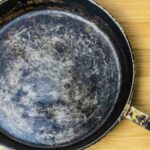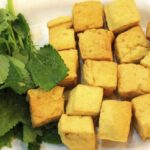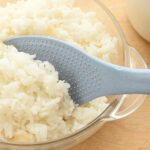Non-stick pans are essential kitchenware for any household that loves fried food. However, if you don’t know how to properly care for and protect the non-stick coating before use, your pan will deteriorate quickly. With just a few simple steps outlined below, you can extend the lifespan of your pan.
How to Treat a New Non-Stick Pan
When you buy a new non-stick pan, don’t just wash and cook with it as you would normally. Instead, follow these steps:
– Fill the pan with clean water to about 2/3 of its height and place it on the stove. Heat it until you see steam rising from the water; there’s no need to bring it to a full boil.
– Turn off the heat and discard the water. Let the pan cool down a bit, then use a soft cloth to wipe away any remaining water droplets.
– Place the pan back on the stove and turn the heat to the lowest setting. Take a small amount of cooking oil on a paper towel and evenly coat the inside of the pan for about 30 seconds. Then, turn off the heat and let the pan cool down.
Note: Repeat the third step two more times. There’s no need to wash the pan with dish soap afterward; it’s ready to be used for cooking. This method will help your pan last longer and reduce the chances of the non-stick coating peeling off.

Some tips to make your new non-stick pan last longer.
Tips for a Longer-Lasting Non-Stick Pan
Use a Moderate Amount of Oil When Frying
Non-stick pans prevent food from sticking and burning, so when cooking, use just enough oil to be economical, health-conscious, and to extend the life of your pan.
Add Oil Before the Pan Gets Too Hot
High temperatures can cause the non-stick coating to peel, affecting the quality of the pan and potentially releasing harmful substances into your food. So, be mindful and don’t wait for the pan to get too hot before adding oil.
Avoid Adding Salt When the Pan Is Very Hot
Refrain from seasoning with salty condiments like salt or fish sauce when the pan is at a high temperature, as this can cause the pan’s surface to pit and the non-stick coating to peel more easily.
Don’t Use the Pan for Grilling or Braising
As with the previous two points, using the pan for grilling or braising can cause the non-stick coating to peel during the cooking process, reducing its durability.
Use Wooden Utensils for Stirring
Metal utensils, such as those made of aluminum or stainless steel, can easily scratch the surface of your non-stick pan. Opt for wooden utensils instead to prolong the life of your pan.
Avoid Machine Washing
After using your non-stick pan, soak it in cool water to make cleaning easier. If there are stubborn stains, avoid using abrasive sponges. Also, refrain from using a dishwasher as the powerful jets of water can damage the non-stick coating. Instead, hand wash the pan gently and thoroughly.
After cleaning, it’s best to hang the pan in a dry and well-ventilated area. Avoid stacking it with other kitchenware like cutting boards and pots to prevent deformation.
Source: VTCNews
The Secret Power of the Dots on Your Rice Spoon Revealed
“You may have noticed the tiny dots on your rice spoon and wondered about their purpose. These aren’t just decorative; there’s a practical reason behind this design, and we’re here to reveal all. Read on to discover the fascinating story behind these little dots and how they elevate your dining experience.”





































